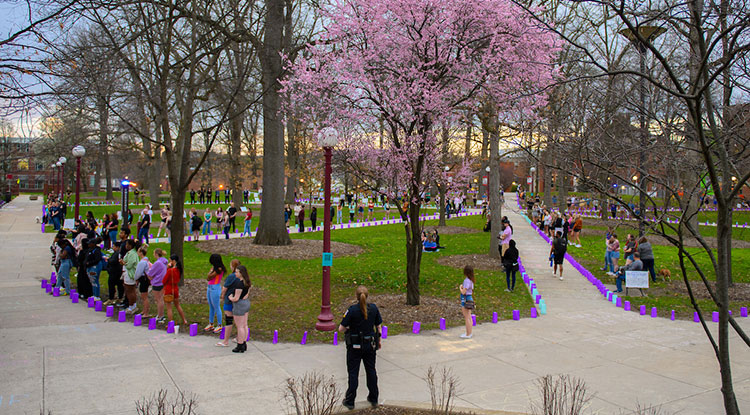
In Take Back the Night’s Lighting of Luminarias, each light represented an IUP student impacted by sexual violence.
Last week, the Haven Project held Take Back the Night, its annual event to raise awareness of sexual assault and to show support for survivors.
The day included the release of a virtual speak-out, a video in which Haven Project peer educators gave a voice to survivors by sharing their anonymously submitted stories.
Evening activities included chalking messages of support throughout the Oak Grove, followed by the lighting of luminarias, with each of the 1,783 lights representing an IUP student impacted by sexual violence. White bags on the lights represented members of the transgender, gender queer, and gender non-conforming community; purple bags represented women; and teal bags represented men.
The evening closed with words of support: “We see you. We hear you. We believe you. We support you.”
Photographer Brian Henry shared this coverage of the Oak Grove activities.
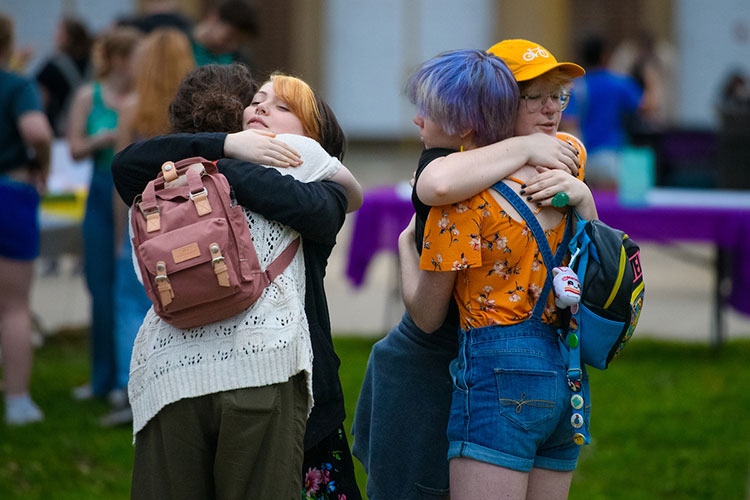 Students, from left, Lynn Munro, Sarah Trafton, Kate Muzy, and Arson Franciscus were among those who attended Take Back the Night to support survivors of sexual violence.
Students, from left, Lynn Munro, Sarah Trafton, Kate Muzy, and Arson Franciscus were among those who attended Take Back the Night to support survivors of sexual violence.
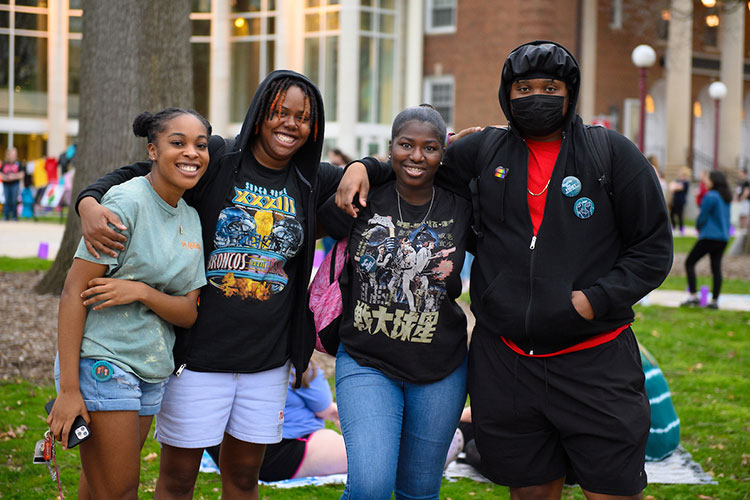 Scores of students turned out to support victims of sexual violence at Take Back the Night.
Scores of students turned out to support victims of sexual violence at Take Back the Night.
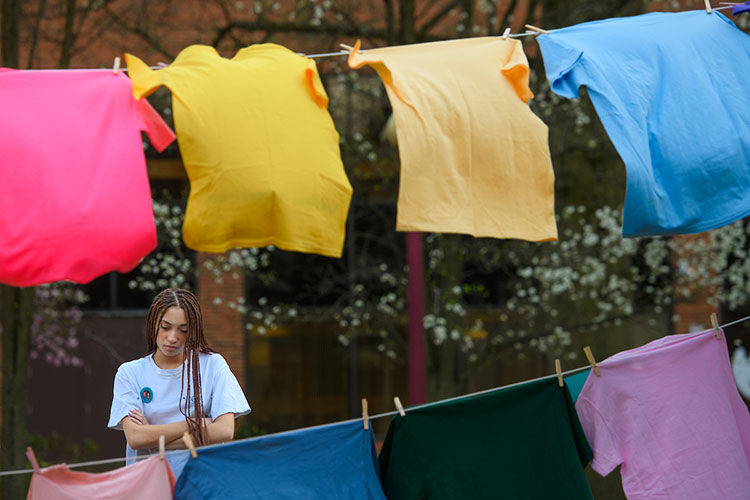 Alize Woodard, a sophomore Communications Media major, looked at submissions to the Clothesline Project, a display of T-shirts designed by victims of violence. The Clothesline Project was started in Cape Cod, Massachusetts, in 1990 as a vehicle for women affected by violence to express their emotions and as a means of raising awareness of the issue.
Alize Woodard, a sophomore Communications Media major, looked at submissions to the Clothesline Project, a display of T-shirts designed by victims of violence. The Clothesline Project was started in Cape Cod, Massachusetts, in 1990 as a vehicle for women affected by violence to express their emotions and as a means of raising awareness of the issue.
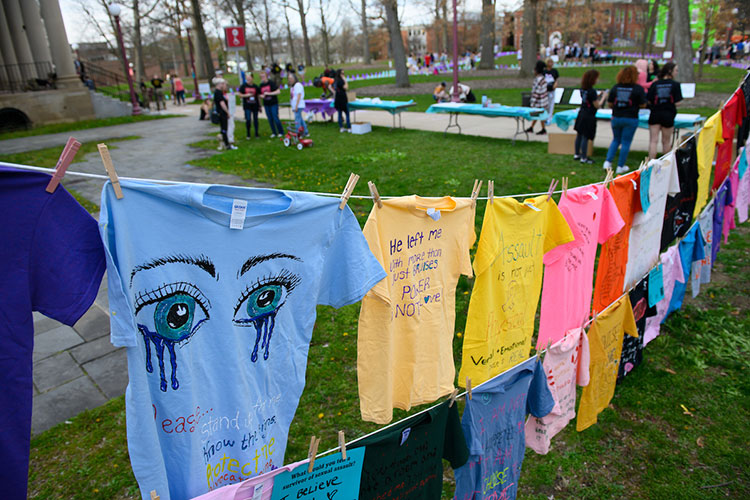 T-shirts designed by victims of violence were displayed as part of the Clothesline Project. The project’s purpose is to increase awareness of the impact of violence, to honor survivors’ strength to continue, and to give them another way to break the silence that often surrounds their experience.
T-shirts designed by victims of violence were displayed as part of the Clothesline Project. The project’s purpose is to increase awareness of the impact of violence, to honor survivors’ strength to continue, and to give them another way to break the silence that often surrounds their experience.
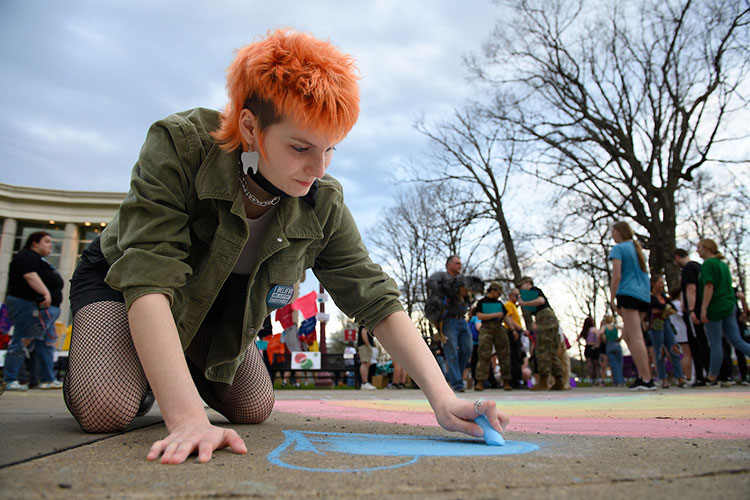 Flora Kelly, a junior Communications Media major, was among the students who chalked messages of support for survivors of sexual violence.
Flora Kelly, a junior Communications Media major, was among the students who chalked messages of support for survivors of sexual violence.